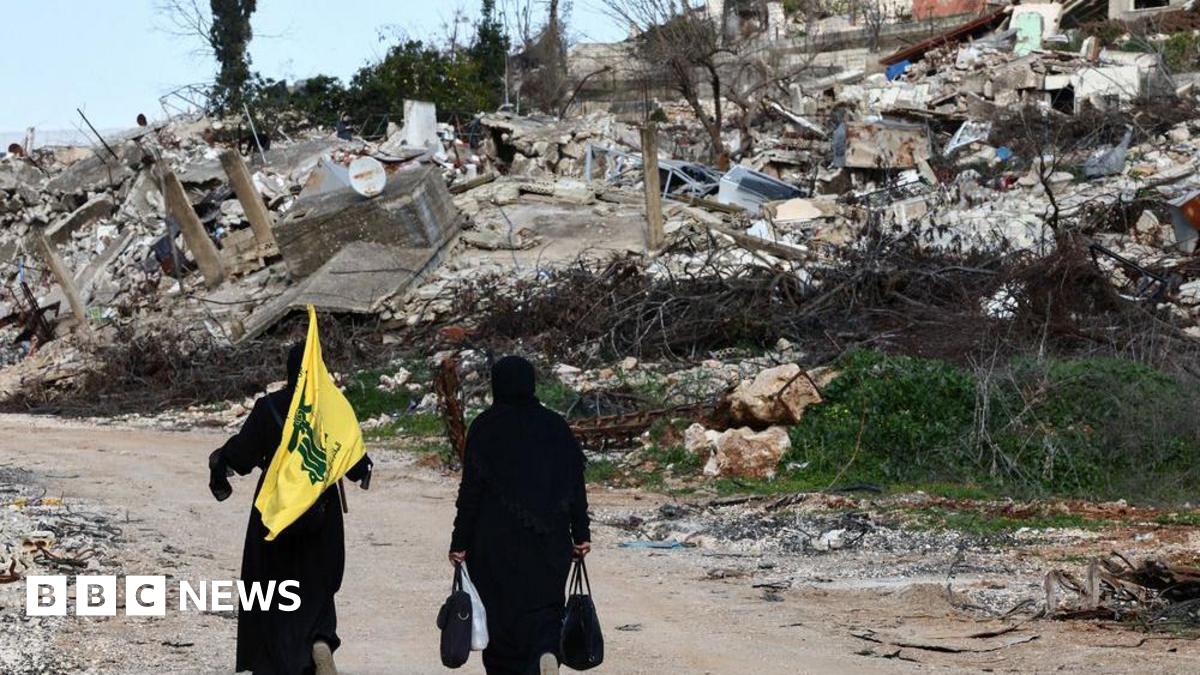Hezbollah Weakened: Crossroads After War
Hezbollah, the powerful Lebanese Shia Islamist political party and militant group, finds itself at a crossroads following recent conflicts. While maintaining a strong domestic presence, its influence and capabilities have arguably been weakened, leaving its future trajectory uncertain. This article explores the key factors contributing to Hezbollah's perceived weakening and analyzes the potential ramifications for Lebanon and the wider region.
The Scars of War and Internal Strife:
Hezbollah's involvement in regional conflicts, particularly in Syria, has taken a significant toll. The prolonged war, while bolstering its military experience, has also depleted its resources and manpower. The loss of key commanders and fighters has undoubtedly impacted its operational capacity. Furthermore, internal divisions within Hezbollah, fueled by differing views on the group's strategic direction and involvement in regional conflicts, are adding to its challenges.
- Economic Strain: The devastating economic crisis gripping Lebanon has directly impacted Hezbollah's financial resources. Its access to Iranian support, while still present, has been hampered by international sanctions and Iran's own economic struggles. This financial strain limits its ability to maintain its extensive network of social services, a key element of its popular support.
- Loss of Popular Support?: While Hezbollah retains a significant base of support among Lebanon's Shia community, there are signs of growing disillusionment. The economic hardship and the group's perceived entanglement in regional conflicts have eroded public trust in some segments of the population. The rise of alternative political voices within the Shia community also signals a potential shift in the political landscape.
- International Pressure: Hezbollah continues to face significant international pressure, particularly from the United States and its allies. Sanctions and designations as a terrorist organization limit its access to international financial systems and hamper its operations. This pressure, coupled with regional dynamics, is forcing the group to reassess its strategies.
A Shifting Geopolitical Landscape:
The regional geopolitical landscape has also undergone significant shifts. The changing dynamics in Syria, the evolving relationship between Iran and the Arab world, and the normalization agreements between Israel and some Arab states have created a more complex and less predictable environment for Hezbollah. These shifts require Hezbollah to adapt its strategies and recalibrate its alliances.
The Road Ahead: Uncertainty and Adaptation:
The future of Hezbollah remains uncertain. While the group is unlikely to disappear, its ability to maintain its current level of influence and power is questionable. The group faces several key challenges:
- Maintaining Popular Support: Hezbollah needs to address the concerns of its supporters and regain public trust, especially in light of Lebanon's ongoing economic crisis. Providing essential services and mitigating the hardships faced by the population will be crucial.
- Navigating Regional Conflicts: Hezbollah needs to carefully navigate the complexities of the regional geopolitical landscape and adapt its strategies to the changing dynamics. This requires a delicate balancing act between maintaining its regional influence and preserving its domestic standing.
- Addressing Internal Divisions: Internal unity is essential for Hezbollah to overcome its current challenges. Addressing the differing views within the group and fostering consensus will be crucial for its long-term survival.
Conclusion:
Hezbollah's perceived weakening is a complex issue with multiple contributing factors. While the group remains a significant player in Lebanon and the region, its future trajectory is far from certain. The coming years will be crucial in determining whether Hezbollah can adapt to the changing circumstances and maintain its influence, or if it will face a significant decline in power. The ramifications of this evolution will have profound consequences for Lebanon's stability and the regional balance of power. Further monitoring of the political and economic developments within Lebanon and the wider region is essential for a clearer understanding of Hezbollah's future.

